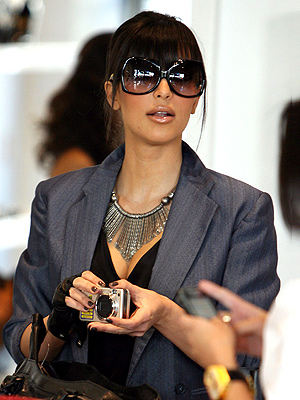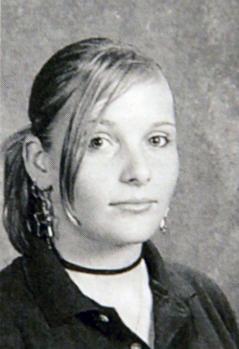|
|
|---|
Sunday, July 18, 2010
Robert Eugene Bush, a logger's son, was born October 4, 1926, in Tacoma, Wash. His parents divorced when he was 4, and he was raised partly in the western coastline town of Raymond,
Wash. He lived with his mother, a nurse, in the basement rooms of the hospital where she worked.
With some friends, he worked at a sawmill whose owners were all too aware of their underage employees. "There was a red light in the ceiling, and when it came on we'd have to go hide under the floor, so the inspectors wouldn't see the mill was being run with child labor," he told the Aberdeen reporter. "There were no men to do the work, because they were all off to the war."
At the age of 17, Robert E. Bush quit high school and enlisted in the Navy. He left his family, girlfriend and education behind to serve his country.
Twelve months of intensive training followed: boot camp, corpsman school and a four-month apprenticeship in a naval hospital. By December 1944, Hospital Apprentice First Class Bush was ready to join the Marines on Pavuvu in the Solomon Islands.
On 2 May 1945, during the battle for Okinawa, he was a Rifle Company Medical Corpsman with the Second Battalion, Fifth Marines, Fifth Marine Division. A patrol of attempted to seize a low seaside hill. A few hundred yards from its starting point, the Japanese took the Marines by surprise. A ceaseless, deadly fire of small arms and mortar rounds fell on the Marines, killing or wounding the majority of them. Robert Bush Spotted the seriously wounded patrol leader lying in a shell hole near the bottom of the hill, Corspman Bush and two Marines ran forward to move their lieutenant out of the line of fire. The Marines were killed outright, but Robert Bush continued on his own.
After he reached the lieutenant, he immediately administered serum albumin. The treatment revived the officer who suddenly sprang up from the fox hole which brought down a hail of fire from the Japanese defenders. Corpsman Bush stayed with the lieutenant until the officer was safely evacuated.
Corpsman Bush had the officer’s carbine and 45 rounds of ammunition. For a few terrifying minutes the hospital apprentice kept the Japanese at bay by firing one or two rounds at every head that emerged above the brow of the hill. The Japanese began throwing grenades.
The first one exploded near Robert Bush, shattering his left arm, puncturing a lung and blinding him in the right eye. Other grenades wounded him in the stomach and back.
Corspman Bush realized that taying put, meant certain death. The badly wounded Corspman began moving around the hill firing the carbine, emptying it along withhis .45 caliber pistol at the enemy before throwing it away.
He picked up a dead Marine’s rifle, as he continued along. He surprised four Japanese soldiers and wounded or killed all of them. He attemptted to walk back to the battle aid station, but collapsed and was carried on a stretcher.
After he was injured, he received treatment in Hawaii and played ping-pong to regain hand-eye coordination.
Eventually, Robert Bush was transferred to Oak Knoll Hospital near Oakland, California. There he received further treatment for his wounds and an artificial eye.
In July 1945, Robert Bush was discharged. He returned home to Washington state and reentered high school.
Robert Bush and Wanda Spooner when they were married.
He got married to his girlfriend, Wanda Spooner. Two days before his nineteenth birthday, and on his honeymoon, on October 5, 1945, Robert Eugene Bush received the Medal of Honor on the White House lawn from President Harry S. Truman.
Robert E, Bush was the youngest World War II Navy man to receive the Medal of Honor.
When speaking about the experience, he told a reporter in Aberdeen, Washington. "The first grenade took my eye out, and I put my arm up to hold it off, and got some fragments in the other eye. Got a lot in my eye and shoulders. They hit me with three hand grenades in a matter of seconds. I was firing on them with [the lieutenant's] carbine. Every time I saw a Japanese head pop up, I could see the star on their helmets, I'd fire one round a foot below where I saw that head come up, because I knew I couldn't miss, I'd get 'em on the way down." Robert Bush remarked, “I left home a boy and came back a man, with some understanding of the cost paid by our forefathers for the precious Freedom we enjoy.”
During the battle for Okinawa three Navy corpsmen were awarded the Medal of Honor for shielding their wounded charges from further danger. HM-1 Robert Eugene Bush, 18, from Tacoma, Washinton., though severely wounded, survives after fighting off attackers with his pistol and a carbine while shielding a wounded officer. He refuses treatment for his own wounds until all his patients are cared for properly and evacuated to safety. Pharmacist's Mate-2 William David Halyburton, Jr., 20, of Canton, North Carolina, and HM-1 Fred Faulkner Lester, who had just turned 19, from Downers Grove, Illinois., both of them died attempting to rescue wounded Marines and from using their own bodies to shield the wounded.
Postwar Years
Robert and Wanda Bush were the parents of three sons and a daughter.
During the following Years Robert Bush was a successful businessman in Washington State and worked on behalf of military veterans. He also served as President of the Congressional Medal of Honor Society.
He had attended the inaugurations of every president since Dwight D. Eisenhower, excepting that of Lyndon B. Johnson, who didn't invite Medal of Honor recipients. Robert Bush was not related to either of the Presidents Bush.
In 1951, he bought a friend's lumberyard in South Bend, Washington, for several hundred dollars and, with a partner, turned the operation into a multimillion-dollar enterprise. He also became involved in several building materials businesses before retiring in the mid-1980s.
Because he had only one eye, Mr. Bush spent many years in training before he earned a private pilot's license. He often shuttled his friend James H. "Jimmy" Doolittle, the Army Air Forces general famous for his wartime raid over Tokyo, to a rural retreat for salmon fishing.
Medal Of Honor Citation:
The President of the United States in the name of The Congresstakes pleasure in presenting the Medal of Honor to
ROBERT EUGENE BUSH,
Rank and organization:
Hospital Apprentice First Class,
U.S. Naval Reserve,
serving as Medical Corpsman with a rifle company, 2d Battalion, 5th Marines, 1st Marine Division.
Place and date:
Okinawa Jima, Ryukyu Islands,
May 2, 1945.
Entered service at:
Washington.
Born:
October 4, 1926,
Tacoma, Washington
Citation:
For conspicuous gallantry and intrepidity at the risk of his life above and beyond the call of duty while serving as Medical Corpsman with a rifle company, in action against enemy Japanese forces on Okinawa Jima, Ryukyu Islands, 2 May 1945. Fearlessly braving the fury of artillery, mortar, and machinegun fire from strongly entrenched hostile positions, Bush constantly and unhesitatingly moved from 1 casualty to another to attend the wounded falling under the enemy's murderous barrages. As the attack passed over a ridge top, Bush was advancing to administer blood plasma to a marine officer Iying wounded on the skyline when the Japanese launched a savage counterattack. In this perilously exposed position, he resolutely maintained the flow of life-giving plasma. With the bottle held high in 1 hand, Bush drew his pistol with the other and fired into the enemy's ranks until his ammunition was expended. Quickly seizing a discarded carbine, he trained his fire on the Japanese charging pointblank over the hill, accounting for 6 of the enemy despite his own serious wounds and the loss of 1 eye suffered during his desperate battle in defense of the helpless man. With the hostile force finally routed, he calmly disregarded his own critical condition to complete his mission, valiantly refusing medical treatment for himself until his officer patient had been evacuated, and collapsing only after attempting to walk to the battle aid station.
His daring initiative, great personal valor, and heroic spirit of self-sacrifice in service of others reflect great credit upon Bush and enhance the finest traditions of the U.S. Naval Service.
Some Other Honors
Robert E. Bush Naval Hospital in Twentynine Palms, California was named in his honor, as was the Bush Health Care Clinic, located at Camp Courtney, Okinawa, Japan.
In 1998, a monument depicting his actions on Okinawa was erected in a park named for him in his hometown of South Bend, Washington, which named a street after him as well.
Former NBC News anchor Tom Brokaw wrote a chapter about Bush in his World War II book TheGreatest Generation (1998).
*****
Robert Eugene Bush died from cancer at the age of 79. on November 8, 2005, in Olympia, Washington, and was buried at Fern Hill Cemetery, Menlo, Washington.
His wife Wanda (Spooner) Bush predeceased him in 1999, and a son, Lawrence Bush, died in 1986.
Survivors include three children; Susan Ehle of Vancouver, Washington, and Robert M. "Mick" Bush and Richard Bush, both of Olympia, Washington and eight grandchildren; and two great- grandchildren.
When a reporter had asked about his Medal of Honor, Robert Bush reportedly commented: "This medal wasn't given to me because I'm the greatest guy who came down the pike. We had thousands who lost their lives who were certainly identifiable as being able... to receive the Medal of Honor. But perhaps it wasn't properly documented. So, I look at it as though I'm a custodian for those who died." (quoted from his obituary in the "Washington Post",November 10 2005).
0 Comments:
Subscribe to:
Post Comments (Atom)




























